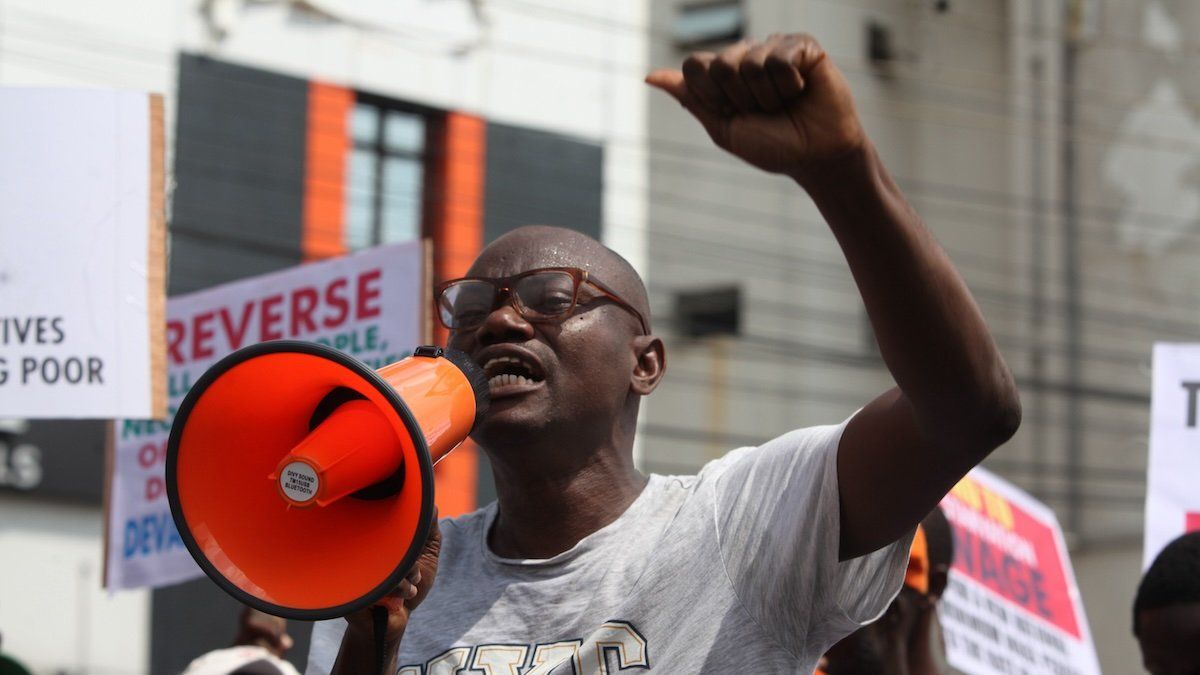Activists in Nigeria have called for 10 days of protest, set to start Thursday, over the debilitating cost-of-living crisis in the country, which previously boasted Africa’s largest economy.
The US, UK, and Canada have issued travel alerts over the protests, warning of the potential for violence. But unless there is a forceful response from security forces, the demonstrations are unlikely to turn violent, says Amaka Anku, head of Eurasia Group’s Africa practice.
The protests come as Nigerians face crippling inflation and struggle to afford basic goods, including food. Demonstrators are also incensed over President Bola Tinubu’s move to scrap a popular fuel subsidy, which cost the government roughly $10 billion.
The Nigerian demonstrations were inspired by recent protests in Kenya, which were sparked by a finance bill that would’ve raised taxes and was ultimately scrapped. But Anku says the protests in Nigeria don’t have a specific demand like those in Kenya and are “more about expressing general frustration with economic conditions.”
Tinubu recently approved a wage hike, which was seemingly an effort to appease people, but “obviously it’s not enough,” says Anku. “In the end, nothing can make you feel better about your currency losing 70% of its value in a year.”
We’ll be watching to see how Tinubu’s government responds to the demonstrations in the days ahead, and whether the protests prompt any policy shifts.
